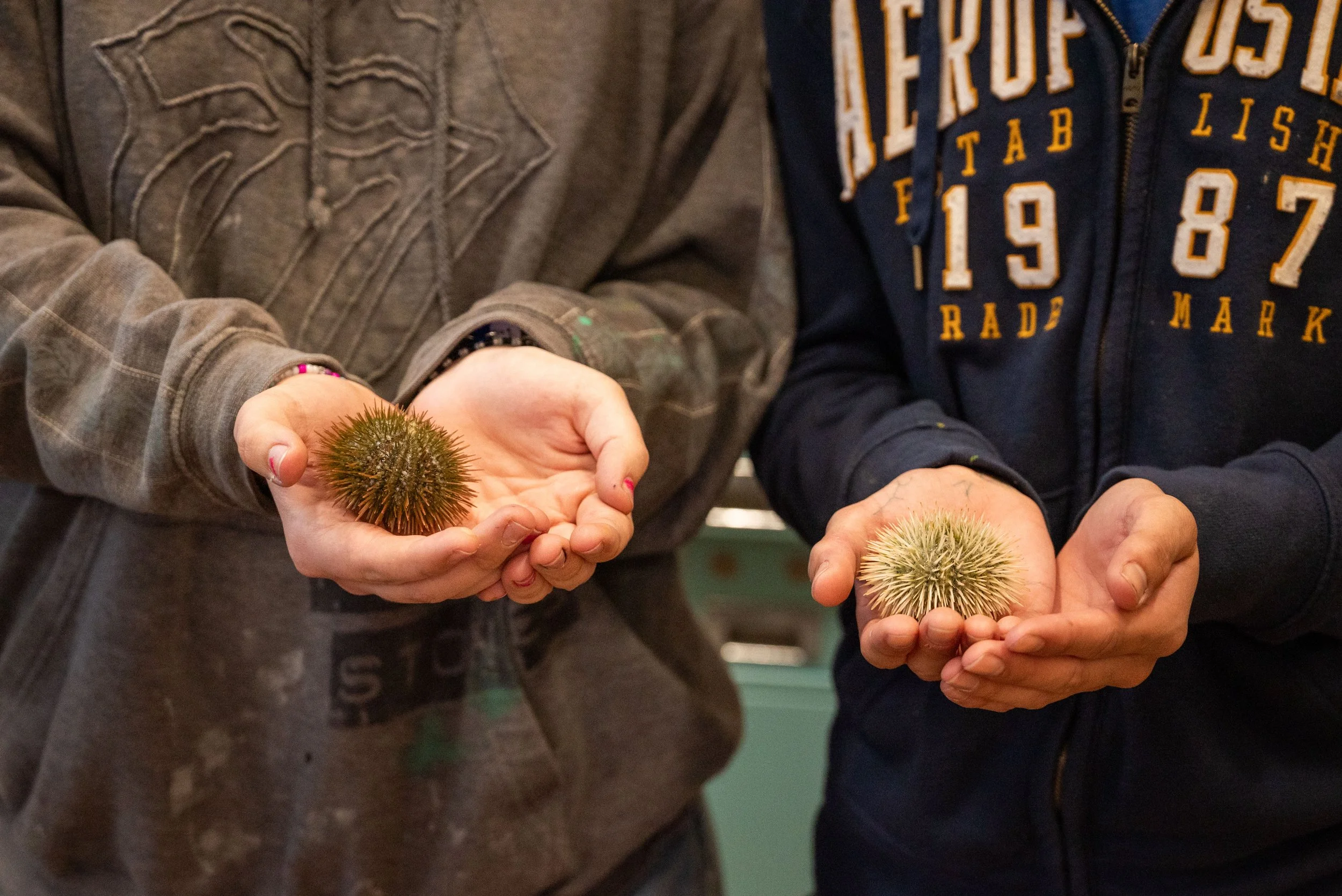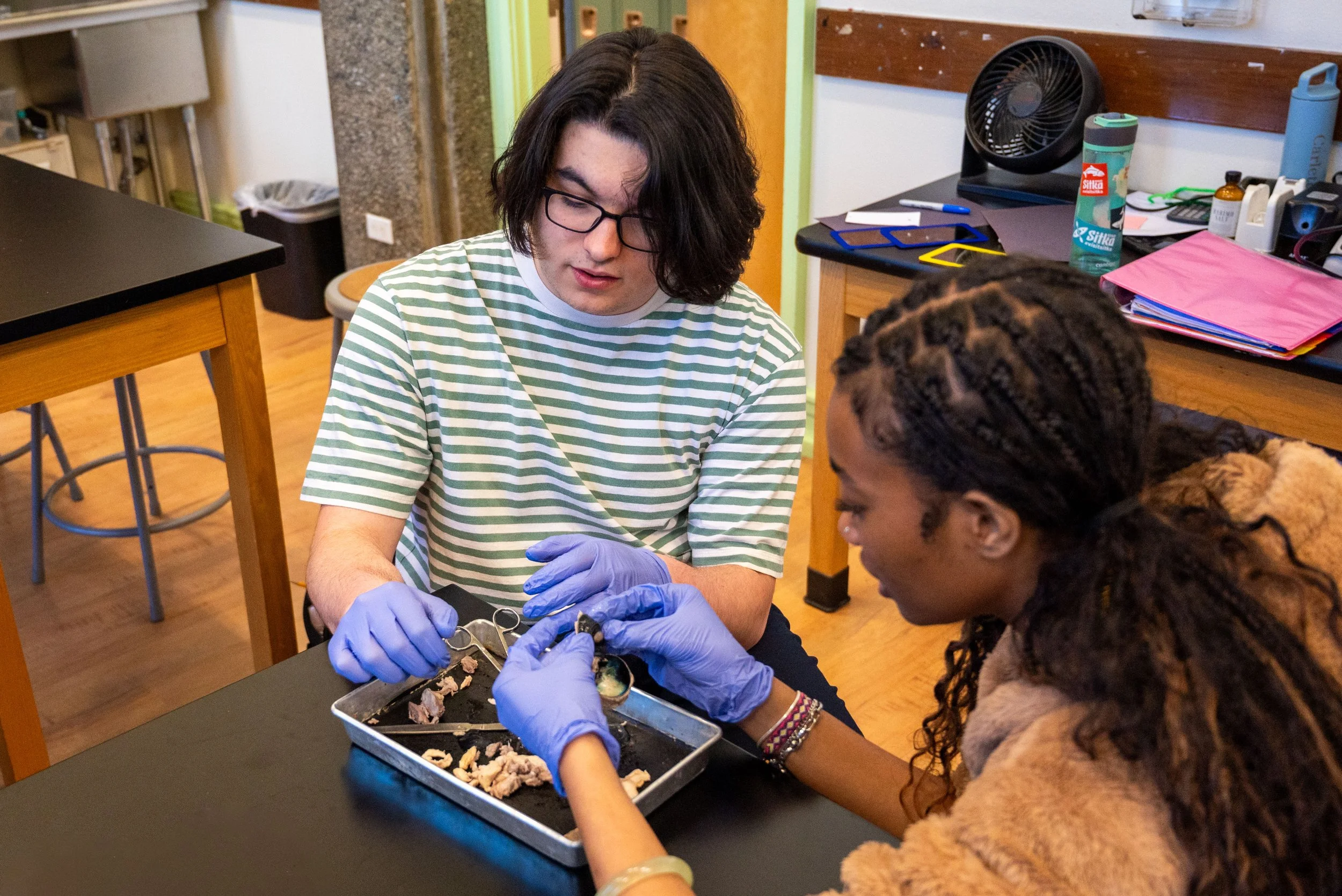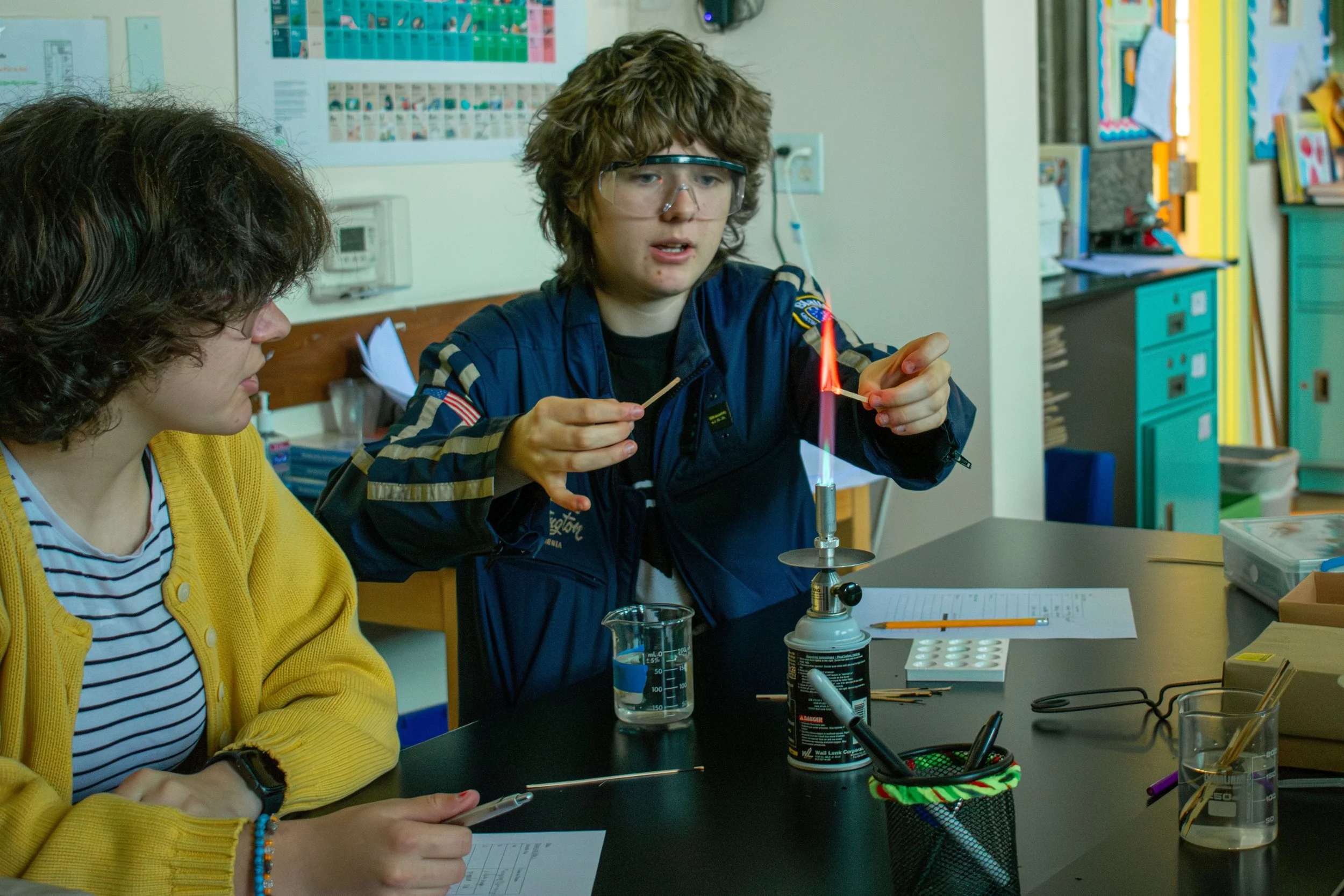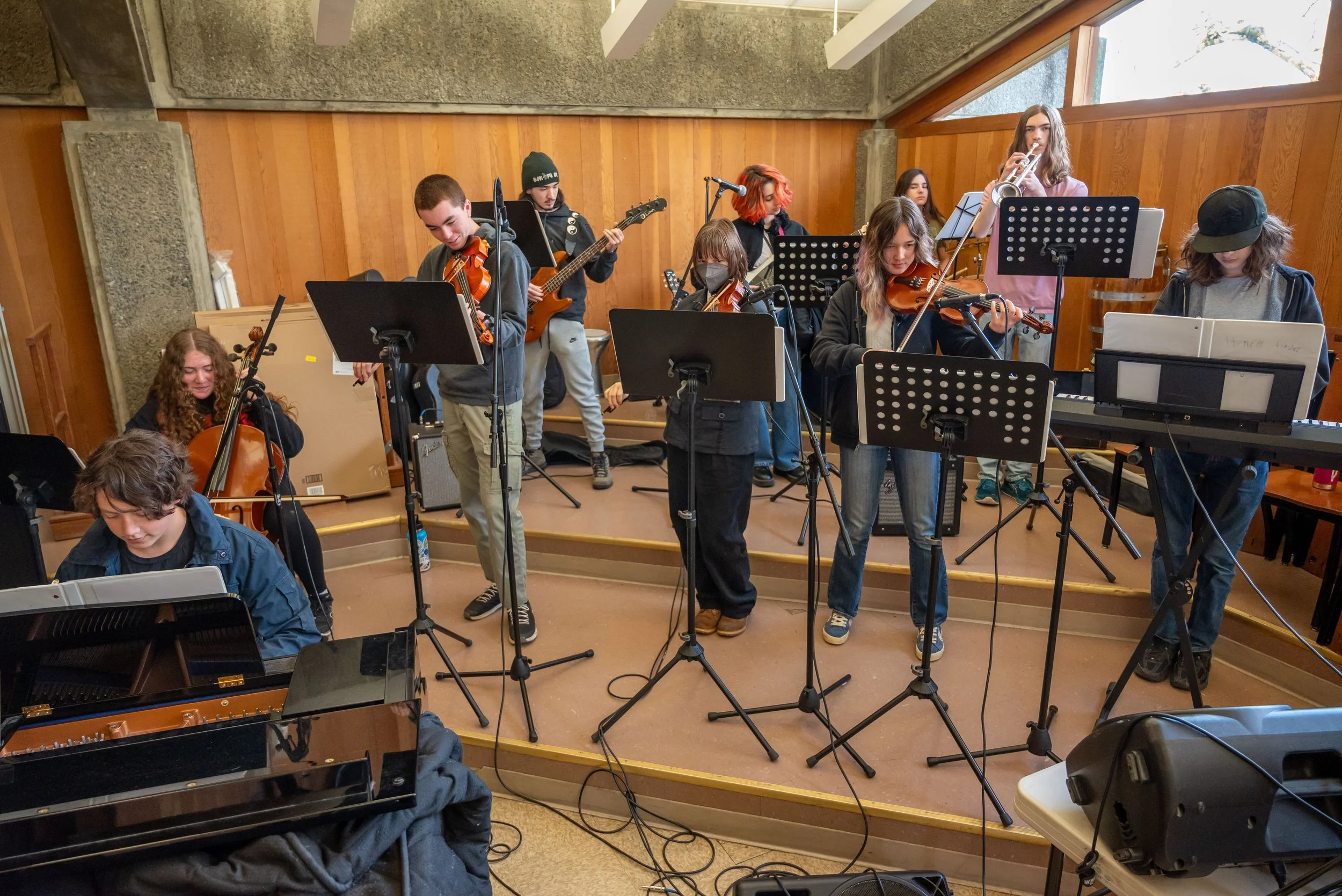Science
We believe students learn best by practicing the scientific method itself. From the beginning of their 9th grade year, students regularly practice scientific investigations of increasing complexity. By the time students graduate Maybeck, they have completed countless labs, written lab reports, and even read and analyzed articles from professional scientific journals. We sequence our courses to emphasize the connections and overlap between all scientific disciplines as well as offer science electives to encourage students to explore their own interests in STEM.
Students are required to take three years of science, which must include Biology and Chemistry. The sequence includes 9th grade Conceptual Physics, 10th grade Chemistry, and 11th grade Biology, which allows students to build their knowledge from year to year. Seniors take a science electives that allow them to dive deeper into a subject of their choice.
Required Courses
Core Science Courses
Advanced Science Courses
Sample Science Activities
In Environmental Science, students take soil samples from their homes and neighborhoods to analyze soil quality in the lab.
In Advanced Physics, students film projectiles, tracking trajectories to derive gravitational acceleration.
In Biology, students extract live sea urchin gametes and mix them to watch fertilization occur live as they observe through a microscope.










